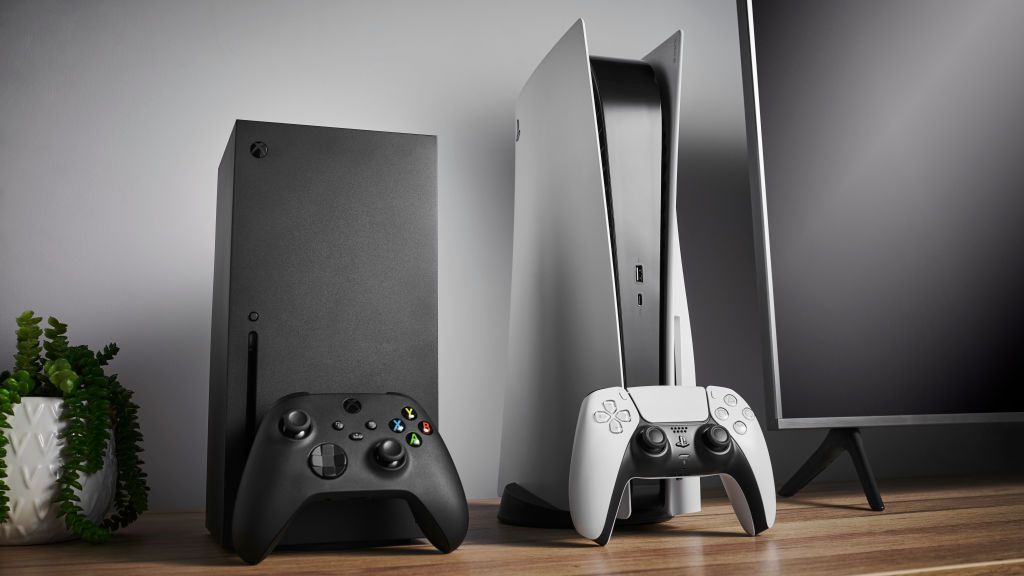It’s been a long while since I took a huge and ambitious leap into the gaming PC ecosystem, and with it have come plenty of highs and lows. As one who also plays games on console, specifically Sony’s PS5, it was incredibly frustrating to go from a simple start-up and play design, to then deal with file tinkering and adjusting other PC settings.
However, once I became accustomed to this and also learned about the benefits of the platform, notably that PC multiplayer was free (as it should be), it became my primary gaming station.
Unfortunately, that’s not the case with consoles. Both Microsoft and Sony have long introduced multiplayer subscription plans, through Xbox Game Pass and PS Plus, respectively, which means console gamers must subscribe to either, in most cases, to play games online (excluding free-to-play titles like Fortnite).
Now you may read that and say, “Well, it’s been like this for years, and it’s normal, right?” The former is right, yes, but the latter statement explains the issue in a nutshell. Ever since this online paid subscription model was introduced to console gaming, it’s sadly become normalized by gamers and just brushed aside as something that just has to be done. So much so that it’s now at the point of no return, as it’s become a standard for years.
Simply put, we all already pay for an internet service to use across multiple devices, especially access to the internet on PCs. If there’s a new online game I’m looking forward to, I can easily purchase it and dive right in with no extra required charges on platforms like Steam, Battle.net, or the Epic Games Store. So if that’s the case, why the exception with consoles?
It ultimately brings me to the understanding that PC gaming is a cheaper expense in the long term versus consoles. Still with me? Good, I’ll explain why.
Gaming PC hardware is more expensive than console hardware, but the expense to play games, is not

While I’ve recently encouraged console gamers to stay away from PC, due to the ridiculous price inflation of GPUs, it still doesn’t change this point; gaming PC hardware is more expensive than consoles, yes, but actually being able to play games is cheaper.
On PC, gamers have access to a variety of inexpensive games, either through Epic Games Store’s free releases (also Prime Gaming) or online key marketplaces like CD Keys, offering new games at significantly lower prices. I can’t remember the last time I’ve had to pay full price for a single game, and part of that includes some of Steam’s generous sales.
Now, there are console games available on key sites, and dare I say plenty for Xbox consoles – but that’s far from the same story for PlayStation games. There are few games at key retailers, and if there are, they’re often old titles that appear months after launch.
What’s worse is that Sony’s PlayStation store hardly has any steep sales, and old games tend to stay at their original retail prices, even years after launch. If you don’t believe me, take a good look at God of War Ragnarok, a 2022 game that’s still $69.99.
Essentially, it’s either you pay up (which could potentially be $80 soon) or be forced to await a rare and enticing discount for a game, since the industry is infamously moving away from physical copies. At least with physical copies, this wouldn’t be a big issue, as prices would vary, and you can’t have the game taken away from you at any moment – but that privilege is slowly fading away.

I held onto my RTX 3080 Ti for 4 years, after initially buying it at £1,099 (equivalent was $1,199), its original retail price, closer to the end of its life cycle in 2021. Despite the terrible PC ports of recent years, I could have easily continued with Nvidia’s RTX 3000 series GPU (especially now with DLSS 4) if I hadn’t had the privilege of being offered an upgrade.
My point is that while buying high-end hardware is expensive as a bundle, it can last you longer than console generations without needing an upgrade, while games aren’t nearly as expensive as those on console, specifically, Sony’s PlayStation systems. The thing is, consoles are creeping up on PC pricing, with the PS5 Pro at $699.
PS Plus and Xbox Game Pass multiplayer access isn’t ‘fine’, it’s ridiculous
And of course, there’s the elephant in the room, which is PS Plus and Xbox Game Pass. The former’s base subscription plan, which is known as ‘Essential’, costs $59.99 a year, just a few dollars short of what you would pay for the standard edition of a new Call of Duty game at $69.99. You throw in the cost of the service and the game, and you’re paying $129.98.
It gets worse with the ‘Premium’ plan that essentially replicates Xbox Game Pass, but without day one titles, and it costs $119.99. Do you see where I’m going with this?
I can vouch for Microsoft’s Game Pass service, which provides plenty of new games day one for both console and PC players, and that doesn’t happen with PS Plus – and in all honesty, its monthly games are lacklustre. That doesn’t make it any better, though, as you still need to pay for Game Pass Core to play online on console.
However, PC players also don’t have to rely on Game Pass for new games and can find inexpensive alternatives. There’s little reluctance when purchasing cheaper PC games, and I don’t get that same feeling with my PS5; it’s got nothing to do with being “broke”, but instead knowing what’s worth purchasing and what isn’t.
If pricing is what has deterred you from building a gaming PC, then just know that the first and biggest hurdle will be the pricing of hardware. After that, you’re on your way to cheaper gaming without any paywalls for things that should be prerequisites.
You may also like…
- I ditched my PC for the MSI Vector A18 HX A9W gaming laptop – here’s my verdict after three weeks
- New Nintendo Switch 2 Cyberpunk 2077 gameplay has been revealed – say what you like, but I’m still not impressed
- A new MSI Claw is rumored to be in the works – and it could get AMD’s best handheld processor to challenge the Legion Go 2
This post was originally authored and published by from Tech Radar via RSS Feed. Join today to get your news feed on Nationwide Report®.




























